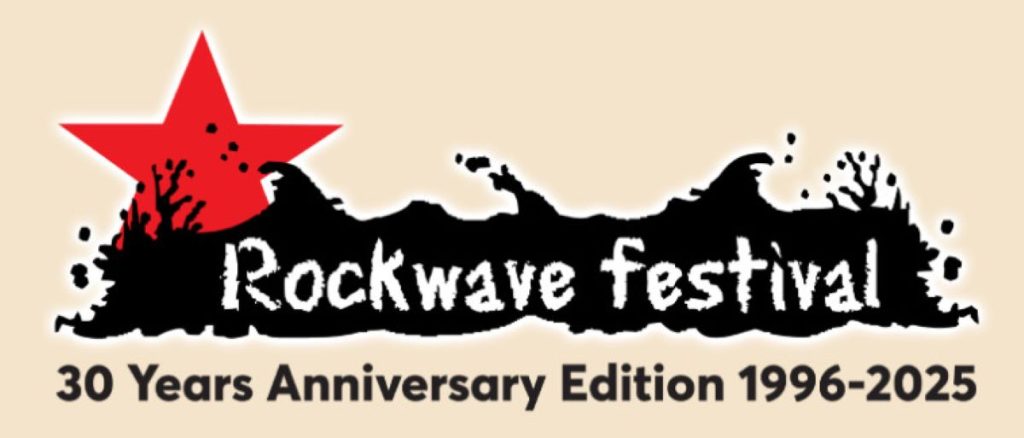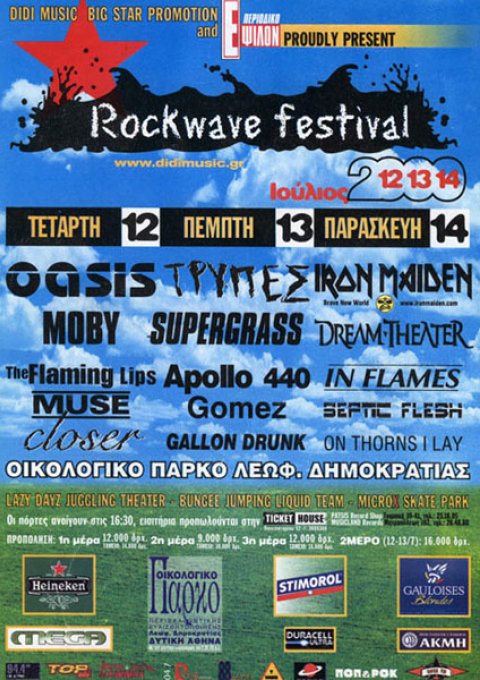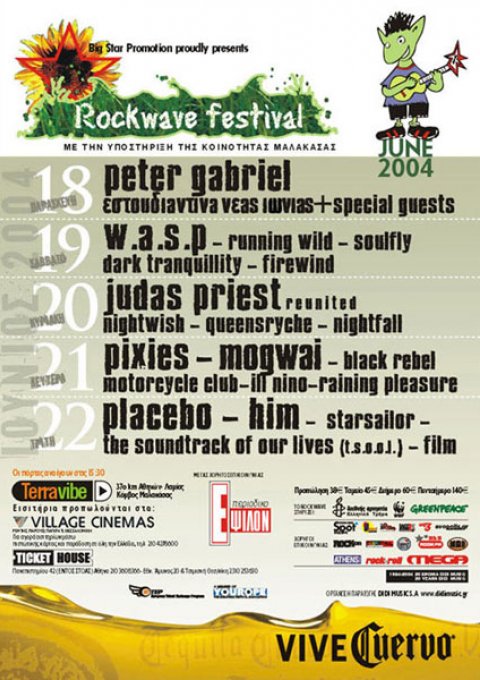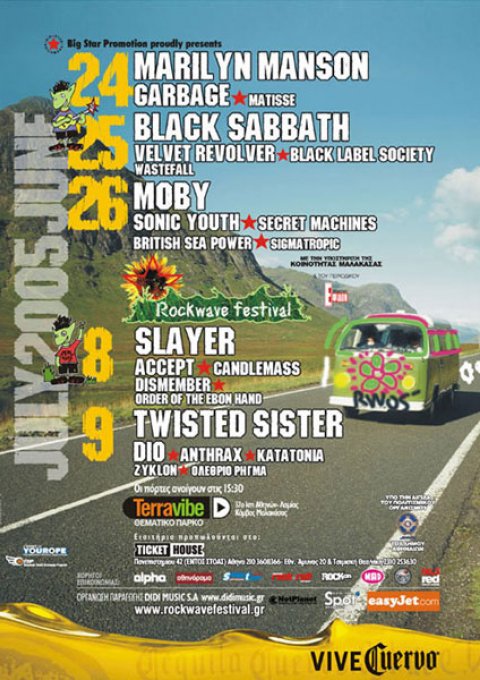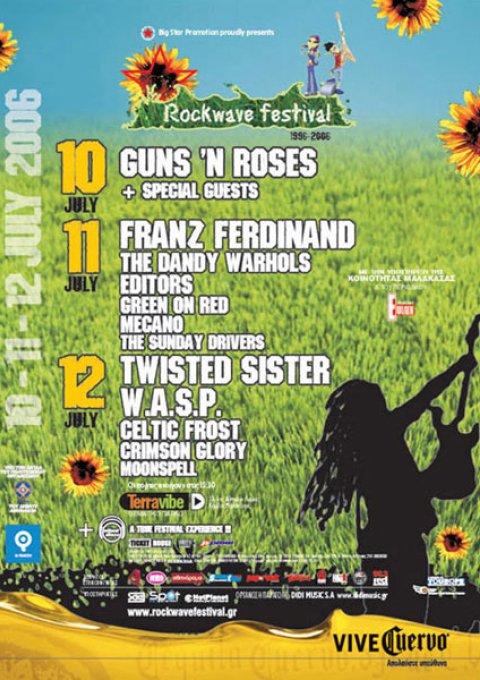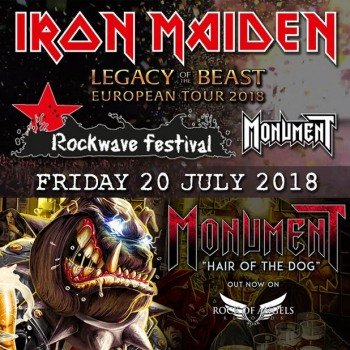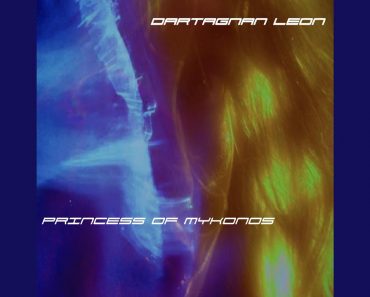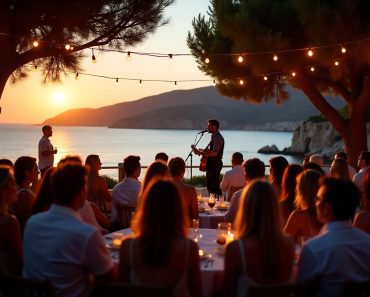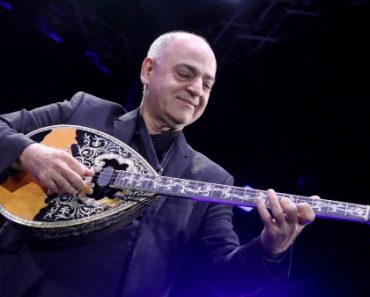From the rusting industrial ruins of Drapetsona to the lush pine forests of Malakasa, Rockwave Festival has spent nearly three decades carving out its place as Greece’s ultimate rock pilgrimage. What began in 1996 as a bold experiment has grown into the country’s most iconic music event—a thunderous blend of global rock royalty, Greek resilience, and unforgettable moments that feel more like myth than memory.
This is the story of a festival that’s seen it all: canceled legends, explosive reunions, epic rainstorms, 20,000-person mosh pits, and fans abandoning their cars on the highway just to make it to the gates. A festival born in the industrial badlands, reborn in the forests, and now etched into Greece’s musical DNA.
The Rock of Gods: The First Rumble (1996)
It all began with a name that sounded like an ancient prophecy: Rock of Gods.
In July 1996, in the gritty port town of Drapetsona, outside Athens, Greece witnessed its very first large-scale rock festival. The concept seemed almost fantastical—until it wasn’t. Suddenly, it was real. As journalist Maria Markouli wrote at the time, “For those who knew, it wasn’t a surprise. For the rest, it was like a vision made flesh: Greece’s first rock festival, brimming with bands, hours of live music, and a raw ‘90s energy.”
Inspired by the spirit of European giants like Phoenix, Reading, and T In The Park—and propelled by promoter Nikos Loris of DiDi Music—it set a new standard for Greek live music. “Our goal,” Loris said, “was to bring artists that had never before played in Greece. Even the smaller names mattered.”
And the world began to notice.
R.E.M. in Athens and Prodigy’s Fiery Return (1999)
By 1999, Rockwave had gone national. That year, it took over the Agios Kosmas Sports Complex and delivered a lineup that today reads like a dream: Blur, Garbage, Placebo, Patti Smith, and the show-stopping, rare appearance of R.E.M., in one of their most beloved European performances.
That same summer, The Prodigy returned to Greece after a notorious first encounter: during their debut in Athens, the band was pelted with rocks by fringe elements outside the venue. “Has that ever happened again?” a journalist asked Maxim, the band’s wild-eyed vocalist.
He laughed, “Of course not. But hey, it made the British music press.”
This was Rockwave: chaos and brilliance in equal measure.
The Disappointments: Flaming Lips, Iron Maiden, and the Gomez No-Show (2000)
Not every year was smooth sailing.
In 2000, fans were stunned when several major acts—including Iron Maiden, Gomez, and The Flaming Lips—dropped out last-minute. It was a blow that could have ruined the festival. But Greek band Trypes, heroes of the local rock scene, stepped in and delivered a powerhouse performance, saving the day with raw, magnetic energy.
Still, the cancellations marked a turning point. Expectations had risen—and so had the pressure.
Motörhead and the Bureaucratic Shutdown (2002)
In 2002, Rockwave nearly died.
A labyrinth of red tape and licensing failures led to the entire festival being canceled, shocking fans and artists alike. But out of the ashes came a solution: a one-night-only event dubbed the Shockwave Festival at Athens’ historic Lycabettus Theatre, headlined by none other than Motörhead.
The crowd roared, Lemmy growled, and the spirit of Rockwave endured.
A Permanent Home: The Birth of Terra Vibe (2004)
After years of nomadic wandering—from beaches to ports to stadiums—Rockwave found its sanctuary in Malakasa, 37km north of Athens. The newly built Terra Vibe Park, carved out of pine-covered land, became the festival’s spiritual home.
With space for 15,000 campers, bungee jumping towers, vendor villages, and a massive 600-square-meter stage, Rockwave was finally ready to scale up. The same year, the Pixies played their first tour show in a decade—right there, under Greek skies.
Black Sabbath, Ozzy’s Pants, and Marilyn Manson (2005)
“More rock than ever before,” read the papers. And they weren’t exaggerating.
Ozzy Osbourne, drenched in sweat and joy, danced like a man possessed, doused the crowd with buckets of water, and mooned the audience mid-set. Black Sabbath blasted through “Paranoid”, “Masters of Reality”, and “Dirty Women”—their legacy reverberating through the foothills of Malakasa.
Then came Marilyn Manson, who descended onto the stage like a gothic vampire prince. With twisted renditions of “Tainted Love”, “Sweet Dreams”, and “Personal Jesus”, Manson’s industrial opera left the crowd stunned and hungry for more.
Axl Rose and the Greek Flag (2006)
If there’s one image that defines 2006, it’s Axl Rose wrapped in the Greek flag, belting out “Paradise City” to a crowd of 15,000.
Guns N’ Roses brought down the house with an epic 2-hour set, hitting every major anthem—except “Civil War,” which fans begged for all night. Still, few left disappointed. As one headline read: “Axl was a storm. Greece was the thunder.”
Metallica, Mosh Pits, and Mayhem (2007)
They called it “Sick of the Studio ‘07”, but for fans, it was anything but tired.
Metallica tore through “Creeping Death,” “One,” “Nothing Else Matters,” “Seek and Destroy”, and more, before a crowd of over 25,000. The earth shook, the grass vanished, and frontman James Hetfield kept repeating: “I don’t believe it.”
Neither did we.
The Iron Return (2018)
Iron Maiden, who helped launch the festival at the original Rock of Gods in 1996, came full circle in 2018 with their “Legacy of the Beast” tour.
They delivered a 16-song setlist stacked with deep cuts like “The Wicker Man”, “Sign of the Cross”, and the show-stealing “Flight of Icarus”, played live for the first time in 32 years. It was a moment of pure metal nostalgia—and a reminder of just how far Rockwave had come.
Today: Still Roaring, Still Evolving (2025)
This year, Rockwave Festival celebrates 30 years of defying the odds, bringing together titans like Judas Priest, Deep Purple, Alice Cooper, Bruce Dickinson, and Europe. Alongside them, legends of other genres—Cypress Hill, King Diamond, W.A.S.P., and even Greek songwriting icon Dionysis Savvopoulos—promise to create an atmosphere that’s as eclectic as it is electric.
It’s not just a festival anymore.
It’s a rite of passage.


